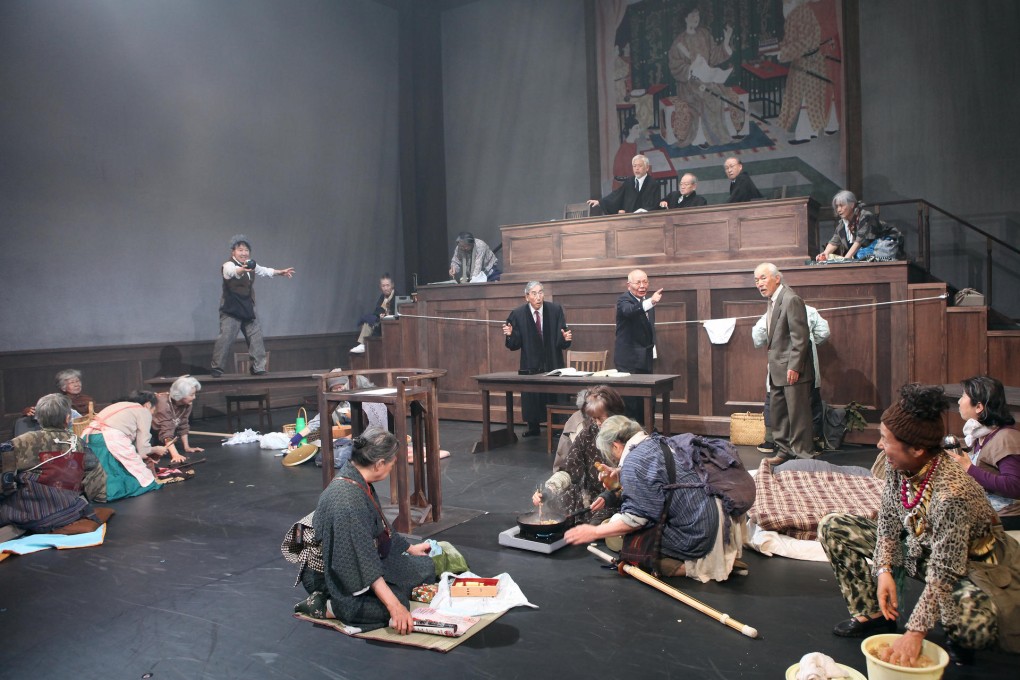Ageing actors give a stage to Japan’s seniors
Japan's senior citizen actors earn much respect in director Yukio Ninagawa's play, which comes to Hong Kong next month

Amorbid if unacknowledged curiosity in watching a play by Yukio Ninagawa is wondering if his cast will all make it through the performance: the youngest actor is a pensioner, the oldest is 88. A trained nurse waits in the wings - just in case. But then Ninagawa, who brings his acclaimed Saitama Gold Theatre to Hong Kong for the first time next month, has made a late career out of not acting his age.
One of Japan's most celebrated directors, Ninagawa - who turned 79 on October 15 - loves upsetting our expectations of how the elderly should behave. Ravens, We Shall Load Bullets - showing at the New Vision Arts Festival - depicts a 22-strong gang of stooped, raggedy women breaking into a courtroom and turning a trial on its head: guards are blown up; judges are stripped of their trousers and held hostage; defendants become plaintiffs. Hurling X-rated invective at the court, the women eventually hand down death sentences on the prosecutors, hated symbols of the establishment. These are characters defiantly refusing to go gently into the good night.
Ninagawa doesn't shy from describing the difficulties of working with his cast. "It's very hard," he says, chuckling at the memory. "They forget their lines, they can't move very fast. If they get one leg caught in their pants, you have to go and help them. And they're getting older so rehearsals take longer.
"We've had cast members lose husbands and family members during production, and some had to enter hospitals themselves. Japan's entire ageing problem is contained in our company."
Nearly a quarter of Japan's population is aged over 65 - a world record. That will rise to 40 per cent by 2060, according to a recent government report which also warns that the population could fall a third unless Japan makes more babies, or embraces mass immigration. The implications for state finances are stark, the government warns.
